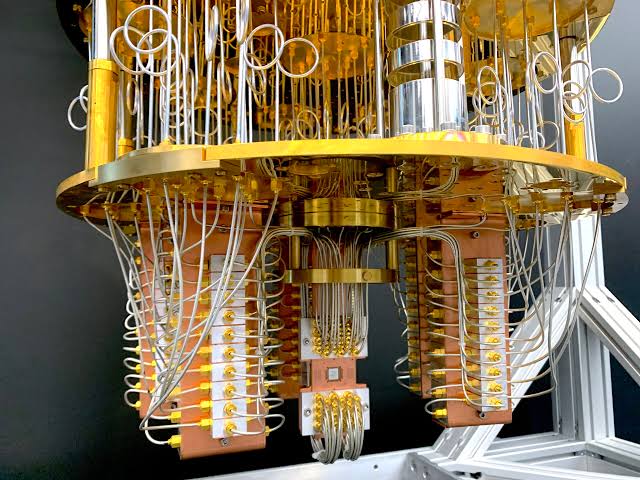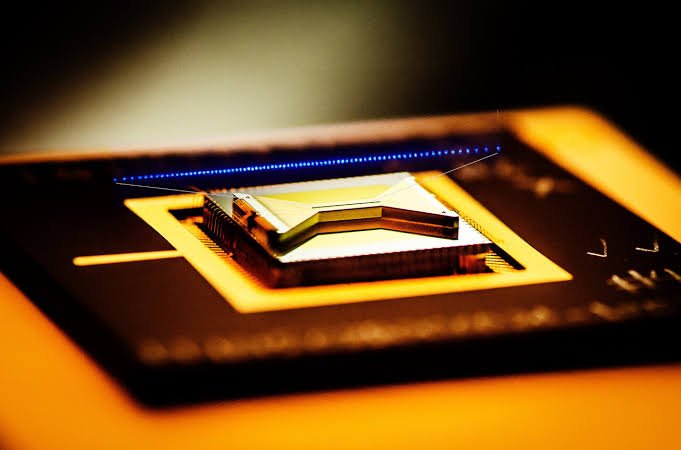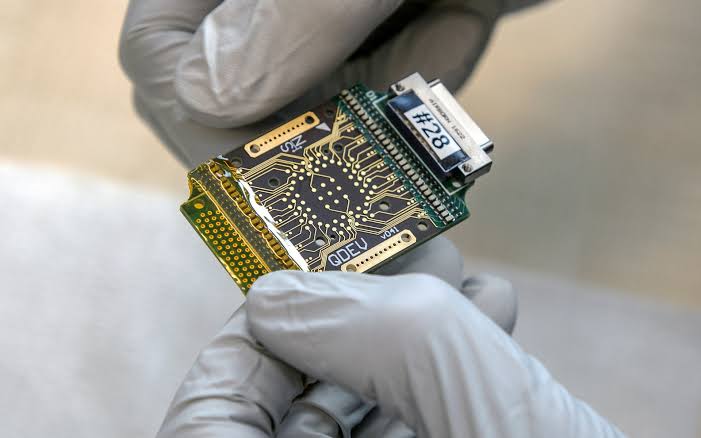Quantum Computing:Unraveling the Future of Technology 2024
Introduction
The meaning of the face of technology is soon to change in ways we hardly know because quantum computing will change its face. This is because, unlike the conventional computer using the bit as the smallest unit of information, it uses quantum bits, or qubits, which can exist in multiple states simultaneously. This fundamental difference opens a completely new range of processing power and problem-solving capabilities that can reach far beyond the limitations of classical computing. Considering this emerging potential role of quantum computers, one can see that this technology would be truly revolutionary, profoundly transforming business enterprise, making the scientific study easier and overhauling the perception of how difficult problems could be solved.

Historical Background
The concept of quantum computing was born in the early 20th century, tracing its origins from the discovery of quantum mechanics. Among the pioneers were Max Planck, Albert Einstein, and Niels Bohr, who laid down the groundwork in the understanding of this quantum world. However, the use of quantum mechanics as a computation tool was first presented by physicist Richard Feynman and computer scientist David Deutsch at the end of the 1980s. In 1982, Feynman proposed that a quantum computer can simulate physical processes which cannot be simulated by any classical computer; in 1985 Deutsch came with the concept of universal quantum computer which could perform any computational task.
Some of the significant milestones in the quantum computing timeline were Shor’s algorithm in 1994, which demonstrated that a quantum computer could break RSA with ease by showing its ability to factor large numbers, and the experimental quantum gates of the 1990s. Quantum entanglement had been produced, along with the demonstration of basic quantum algorithms, in the early 2000s; these constituted many of the pieces that have gone into such rapid progress.
Foundations of Quantum Mechanics
A useful approach to understanding quantum computing begins with a basic acquaintance with the principles of quantum mechanics-that is, the branch of physics concerned with phenomena at the atomic and subatomic levels. Three fundamental concepts drive quantum computing: quantum bits and superposition

While in classical computers, the bits will assign information to be in either one of the two forms: either 0 or 1. Qubits on the other hand can store both 0 and 1 or even both simultaneously by possessing a property known as superposition. Which is what makes it feasible for a quantum computer to process a humongous amount of information much faster by processing in parallel.
End
Quantum entanglement is the phenomenon where two or more qubits are interconnected such that the state of a qubit affects the state of another qubit, regardless of how distant they are. It is a characteristic that enables qubits to perform calculations that would never be possible for bits, thereby allowing these computations to go faster and more efficiently.
Quantum Gates
Quantum gates are the logic gates in digital computing – the version for quantum circuits. They are applied to manipulate qubits through operations that change their state. Quantum algorithms are run as a program by manipulating qubits; therefore, these quantum gates play an important role.
Common quantum gates are the Hadamard gate, the Pauli-X gate, and the CNOT gate, among others.

How Quantum Computers Work
Quantum computers work with quantum circuits and algorithms for computing. These are circuits that consist of qubits and quantum gates arranged to execute some tasks. Quantum computers differ from the classic computers in a way that a classic computer does calculations one after another, while the quantum ones can calculate many of these simultaneously due to superposition and entanglement.
Another interesting feature of quantum computing is quantum error correction. Quantum states are fragile and bring about effects resulting from environmental noise and decoherence. Quantum error correction methods help preserve the integrity of qubits by the detection and correction of errors thus having computations error-free.
Types of Quantum Computers
There exist different approaches towards building a quantum computer each of which has its advantages and disadvantages:
Superconducting Qubits
For example, superconducting qubits are comprised of superconducting materials that show quantum behavior at very low temperatures. Companies like IBM and Google utilize the superconducting qubits and they are easy to manipulate or controlled and thus have received wide usage in early quantum computers.

Trapped Ions
Companies Ion and Honeywell employ a trapped ion quantum computer, using ions that are trapped by electromagnetic fields, which they then subject to laser pulses to control the ions with highly precise and coherent behavior.

Topological Qubits
Microsoft has explored topological qubits, which rely on quasiparticles discovered as anions. They are theoretically supporting fewer error-prone properties than their simulated competitors and offer the possibility of constructing more stable and scalable quantum computers.

Photonic Quantum Computers
Photonic quantum computers employ photons to represent qubits. Companies such as Xanadu are working in this direction that is being supported by the high speed and the low energy use of photons.

Quantum Algorithms and Applications
Quantum algorithms take the extraordinary attributes of qubits and use them for solving more appropriately rather than relying on the conventional algorithm that we use in computational science:
Shor’s Algorithm for Factoring
Shor’s algorithm permits the factorization of large numbers exponentially faster than is possible with the best known classical algorithms. This has big implications for cryptography, since much encryption relies on the difficulty of factorizing a large number.

Grover’s Algorithm for Searching
Grover’s algorithm searches unsorted databases much faster than any classical search algorithm; it gives a quadratic speedup. This could be useful in any number of applications from database management to optimization problems.
This is especially appealing with the current proliferation of complex chemical reactions, material properties, and biological processes whose simulations quantum computers do exceptionally well. Further applications can be expected in drug discovery, materials science, and energy research.
Applications in Cryptography, Material Science, and AI
Thus, quantum computing can create quantum-resistant encryption methods. New materials are founded in material science due to advanced properties based on quantum simulation. Quantum computing can also help AI by improving algorithms of machine learning and faster data processing.

Current State of Quantum Computing
Major Players and Research Institutions
Prominent firms such as IBM, Google, Microsoft, and Intel as well as small agile start-ups such as Righetti Computing and D-Wave Systems will be prominent players in quantum computing research and development. Not to forget, academicians at MIT, Caltech, and the University of Waterloo who have made great contributions to the field.
Some of the recent breakthroughs include Google’s demonstration of quantum supremacy in 2019, whereby its quantum computer had solved a particular type of calculation much faster than the world’s best classical supercomputers. In 2021, IBM announced a 127-qubit quantum processor.
Cloud-based Quantum Computing
Access to quantum hardware and simulators through cloud-based services such as IBM’s Quantum Experience, Microsoft Azure Quantum, and Amazon Bracket allows experimentations on quantum algorithms and applications for researchers, developers, and businesses.

Challenges and Limitations
There are many challenges that exist while promising much in quantum computing:
Technical Challenges
Building and sustaining a quantum computer requires extreme precision and control. Qubits are very susceptible to noise in their surrounding environment, and it is particularly difficult to achieve stable, long-lived quantum states.
Scalability Challenges
Scaling qubit numbers with coherence and low error rates is still one of the biggest challenges. Current quantum computers have a few qubits that limit the ability to solve realistic problems.

Error Rates and Decoherence
Quantum errors and decoherence continue to be a challenge. A breakthrough in robust methods of error correction and improved stability of qubits are the key prerequisites to push quantum computing forward.
Quantum Computing and Cryptography
Quantum computing can be dangerous and opportunistic for cryptography:
Impact on Currently Deployed Cryptographic Systems
A quantum computer will break popular encryptions like RSA and ECC since it can factor large numbers efficiently besides computing discrete logarithms efficiently. Therefore, quantum-resistant cryptographic methods must be built.
Quantum-Resilient Algorithm Development
At present, researchers are busy with post-quantum cryptography to develop quantum-resistant algorithms. Lattice-based cryptography, hash-based cryptography, and multivariate polynomial cryptography are promising in this regard.

Ethical and Societal Issues
The advent of quantum computing raises significant ethical and societal issues.
Ethical Issues
Quantum computing does raise ethical issues about data privacy and security as well as the potential misuse of strong computing power.
Responsible development and deployment of quantum technologies are thought to be a must.
Quantum Societal Impact
Quantum computing would bring deep impacts on society in general, from industrial revolutions to handling global challenges. However, one of the dangers might also include increasing existing inequality if the access to quantum resources is not balanced.

Industry Quantum Computing
Quantum Computing has potential in revolutionary new developments across many industries:
Financial Services
Trading strategies will be optimized, risk management enhanced, and portfolios optimized. In addition, fraud detection will be improved, and financial modeling will be enhanced.
Pharmaceutical and Healthcare
Drug discovery will be accelerated due to quantum simulations that are accurate for modeling molecular interactions. Quantum computation can help in personalized medicine, genomic analysis, and so on.

Logistics and Supply Chain
Quantum algorithms will be fruitful in reducing the cost of logistics operations and efficiency by optimizing supply chain management, route planning, and logistics operations.
Government and Quantum Computing
Governments around the world focus particularly on the strategic value of quantum computing:
National Programs and Funding
There are countries like the United States, China, and the European Union that invest in quantum research and development. These initiatives include the National Quantum Initiative Act in the US and the European Quantum Flagship program as promising advancements for quantum technologies.

International cooperation and Competition
International cooperation is now necessary to move forward in quantum computing, though very intense competition for quantum computing leadership exists among the nations. Collaboration is hastened, while accessing its benefits evenly around the world becomes a foregone conclusion.
Future Directions and Research
The future of quantum computing is full of promise and challenges:
Long-Term Goals of Quantum Computing
Long-term goals involve fault-tolerant quantum computing, scalable quantum systems, and new algorithms for the solution of complex problems that are inaccessible to classical computers.
Emerging Technologies and Approaches
The new path toward advance in quantum computing emerges with the advent of emerging technologies: quantum annealing, topological quantum computing, and hybrid quantum-classical approaches.

Quantum Computing Education and Workforce Development
Building skilled manpower is quintessential in the future development of quantum computing. Educational programs, training, and interdisciplinary collaboration will prepare the next generation of scientists and engineers for that competitive field.
Conclusion
Quantum computing is a paradigm in technology and could lead to revolutions within various industries, improvement in scientific research, and solutions to problems that are considered currently intractable. While still challenging, the rapid progress in quantum computing research and development gets us closer to realizing its full potential. As we move through its far-reaching implications on the ethical front, societal front, and technical front, responsible innovation must be fostered. Quantum computing benefits need to be made available for everyone.
FAQs
What are the challenges of quantum computing today?
Technical difficulties in the establishment of qubits and keeping them stable, scalability, high error rates, decoherence: These are some of the greatest challenges facing quantum computing today. How to design robust quantum error correction methods and how to scale stability out of qubits are two fundamental issues that will let us step quantum computing into new stages.
How will the advent of quantum computing affect cyber security?
Quantum computers are likely to break many of the commonly used encryption algorithms thus presenting a potential future threat to the modern cryptographic systems. There is, therefore, a need to develop new quantum-resistant cryptographic methods to ensure the safety of data in a post-quantum world. Researchers are striving very hard to design quantum-resistant algorithms designed against attacks from computers using quantum computing.




